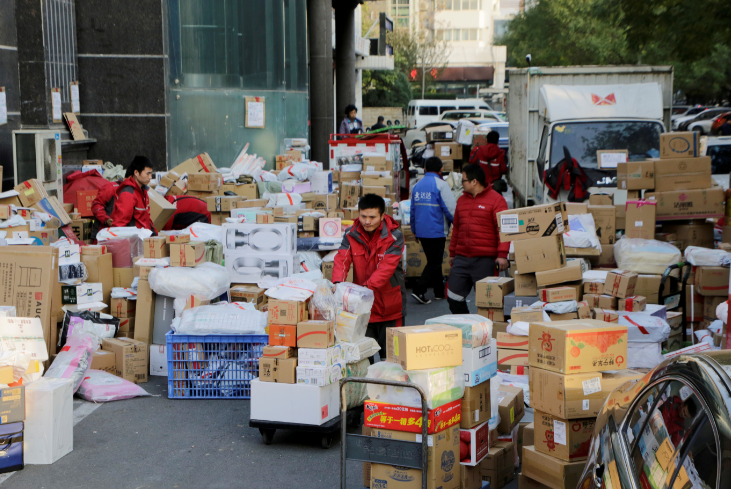The major online retailers are increasing their efforts in making their presence in the country's lower-tier markets as the mainland's next big consumption is seen as happening in lower-tier cities.
Because of the increasing disposable wages and change in expectations in living standards, consumers in these areas put more importance on the quality of products preferring imported items in the process.
Likewise, insiders attest there is a decline in online shopping in the first-and second-tier cities.
Chinese e-commerce goliath JD noted that there is a 60 percent year-on-year increase in 2019s Singles Day shopping which lasted for 10 days starting Nov 1.
Seventy percent of customers putting in new orders come from lower-tier cities.
Xu Lei, CEO of JD Retail, said that growth rate from third-to sixth-tier cities is higher than that from the first-and second-tier areas.
Still, this hasn't stopped online retailers in targeting customers.
JD put up a social e-commerce site, Jingxi, wherein coupons and incentives are given away on group buys.
Jingxi also gives major discounts the moment shoppers share an item with friends or just join the sites' group buying deal on its app.
It also has bargains and flash sales.
Jingxi, an upgrade from JD Pingou used to target females and small city customers with its low-priced items.
Customers could get to Jingxi since Oct 31 through Tencent's social media, WeChat.
The site's female shoppers represent 62 percent while 74 percent came from new users from third to sixth-level tier cities.
With improved infrastructure making moving of merchandise faster, the logistics arm of JD, JD Logistics, is increasing its presence in lower-tier cities for quicker deliveries.
Because the cost of logistics is dropping, JD Logistics CEO Wang Zhenhui said the company will continue with opening services in lower-tier cities so orders will get to customers within 24 hours.
With the online store JD concentrating on lower-tier cities, it purchased a 46 percent stake in the Chinese home appliance retailer Five Star which has more than 220 physical stores.
Likewise, to extend JD's presence in the country, the company announced in July that it will purchase a 9 percent stake in Beijing Digital Telecom, otherwise called Dixintong, which has more than 3,000 physical stores that sell phones, PCs and other customer electronics .
JD now owns more than 12,000 JD home appliance stores, more than 2,000 exclusive stores and has over 160 computer and digital items stores in smaller cities.
Backing up the colossal undiscovered consumption possibilities in smaller cities is the data of Nielsen, a global data analytics firm, stating there are 953 million people in third-tier cities and below, a greater number than the 427 million in the first-and second-tier cities.






